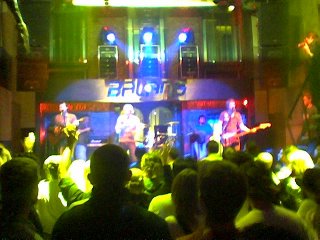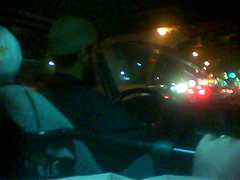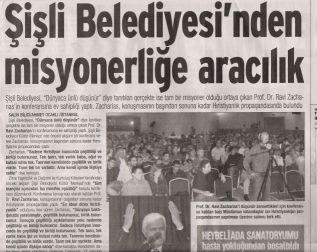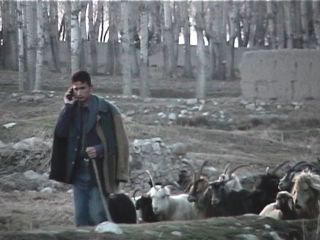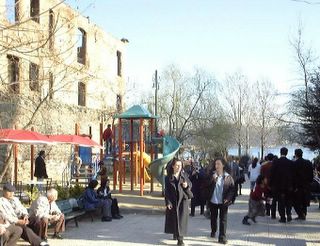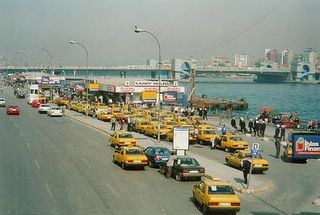"DIYARBAKIR, Turkey -- With its simple wooden Crucifix, rows of Bibles and pastel-colored seats, it looks like a normal church. Until the singing starts, that is.
In the small band behind the altar, guitars are outnumbered by saz -- long-necked Anatolian lutes.
"Let's praise the Lord with our voices," the congregation sings. "Let's praise the Lord with our saz."
On the surface, the 40-odd worshippers -- mostly Muslim converts -- at the Diyarbakir Evangelical Church appear to have plenty to celebrate. After three years of official obstruction, the black stone building they renovated in central Diyarbakir was formally recognized as a church a year ago, becoming the first new Protestant church in southeastern Turkey since the founding of the Turkish republic 82 years ago."
"According to this overwhelmingly Muslim country's new criminal code, it is now illegal to prevent missionaries from working.
"Nobody can claim that religious ceremonies are obstructed in Turkey," Prime Minister Recep Tayyip Erdogan has boasted.
But the reality for Turkish converts to Christianity remains more ambiguous, and many of their problems stem from the vaunted secularism that has defined modern Turkey since it was founded by Mustafa Kemal Ataturk.
Whether Muslim or Christian, religious foundations have been kept in close check. Although the Diyarbakir congregation might have its church, it is still it is not legally recognized as a congregation.
Christians in the Istanbul district of Altintepe faced the opposite problem until September, when the legally recognized congregation finally got its building recognized as a church."
"Most of the other 50-odd Protestant congregations in Turkey are worse off, enjoying only the most tenuous legal recognition."
"Last November, in the southeastern city of Gaziantep, an American missionary was bound and gagged by two assailants claiming to be members of al Qaeda.
Although they didn't follow through on their threats to kill him, they warned that they would come back and finish him off unless he and his family left Turkey immediately.
Missionaries have long been treated with suspicion in Turkey, where rampant conspiracy theories link them to international attempts to divide the country.
The latent mistrust grew into something approaching paranoia in the first half of this year, when news outlets and some members of Turkey's government aroused fears.
On June 11, the staunchly secularist daily Cumhuriyet quoted intelligence sources as saying that evangelists were promoting ethnic divisions by concentrating their efforts on Turkey's Kurds.
The Islamic weekly Aksiyon said in March that 35,000 clandestine congregations were meeting in Turkey. The claim was wildly exaggerated but typical.
Rahsan Ecevit, the secularist wife of a former prime minister, charged in January that missionaries were paying Turks to convert to Christianity.
"We cannot ignore this activity," she said. "At a time we say we are entering the [European Union], we're losing our religion."
Timur Topuz, who attends church in Altintepe, thinks such prejudices stem ultimately from a widespread notion that being Turkish equals being Muslim.
His own grandmother, a Muslim, found it hard to credit his joy at watching Turkey defeat Ukraine in a recent soccer match, he said.
"You, a Christian, happy that Turkey won?" he quoted her as saying.
"People here still haven't realized that nation and religion are different things," he said with a shrug."
The cost of faith�-�World�-�The Washington Times, America's Newspaper
.jpg)

.jpg)

